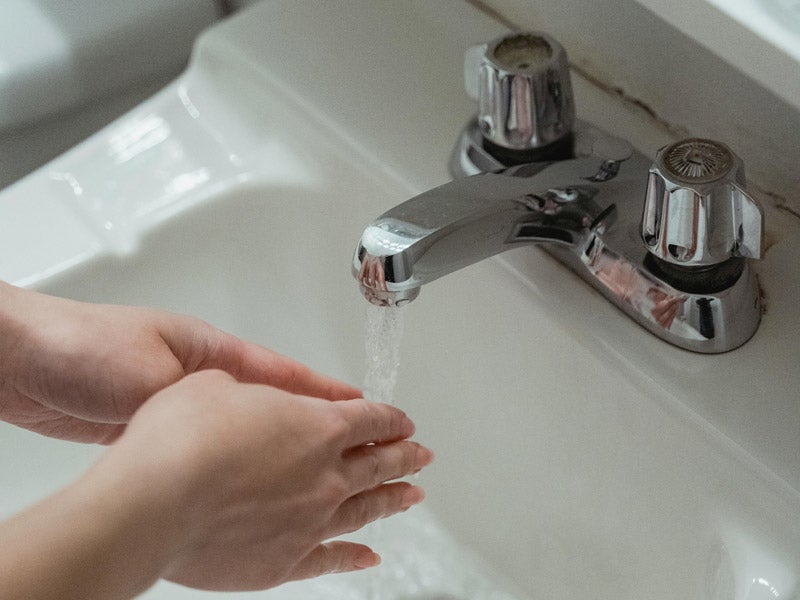How Hard Water Affects Your Plumbing System

Welcome, dear readers, to another insightful journey through the realms of household challenges. Today, we highlight a common yet often underestimated issue – hard water.
Its telltale signs are white, chalky deposits on showerheads and faucets, soap scum that is impossible to scrub, and the dreaded limescale buildup in your appliances. These signs not only indicate the presence of hard water but also hint at the potential damage it’s causing.
Following is a short guide that will take you through the challenges of hard water and its effects on your plumbing in Old Bridge:
What Is Hard Water?
Hard water contains a high concentration of minerals, primarily magnesium and calcium. These are naturally present in the Earth’s crust, and when water comes into contact with rocks and soil, it can dissolve and carry these minerals along with it.
The two types of hardness include permanent hardness and temporary hardness.
Permanent Hardness: This hardness is caused by sulfate, nitrate, and chloride salts of magnesium and calcium. Unlike temporary hardness, permanent hardness cannot be removed by boiling alone. It requires chemical treatment or the use of water softeners.
Temporary Hardness: This hardness is caused by bicarbonate ions. These can be easily removed or reduced by boiling water. As the water heats up, the bicarbonate ions break down into carbonate ions and carbon dioxide, which escape into the air. The carbonate ions then combine with calcium and magnesium ions, forming insoluble precipitates that can be easily separated from the water.
Now that you know what hard water is and its types, let’s take a look at the plumbing issues it causes:
Effects of Hard Water on Your Plumbing
Corrosion
The corrosive properties of magnesium and calcium damage certain metal types used in plumbing. As the minerals break down the metals, water becomes discolored and leads to leaks. If the corroded section is not repaired, the plumbing starts to disintegrate.
As a result, it’s more likely that you will be paying for a larger plumbing repair in Manalapan. Remember, hard water does not just corrode the pipes but the appliances, valves, faucets, and drains too.
Reduced Water Flow
As scale accumulates in pipes, it narrows the pipes’ pathways through which water flows. This can result in reduced water flow from faucets and showerheads. Over time, the diminished water flow can become a significant inconvenience, affecting daily activities such as showering, washing dishes, or doing laundry.
Clogged Faucets and Showerheads
Faucets and showerheads are particularly susceptible to scale buildup. The minerals in hard water can accumulate around the openings of these fixtures, leading to clogs. This reduces water flow and affects the effectiveness of these fixtures. Regular cleaning may be required to maintain optimal performance.
Appliance Damage
Beyond plumbing fixtures, hard water can damage various household appliances. Appliances that use water, such as washing machines and dishwashers, may experience reduced efficiency and a shortened lifespan due to scale accumulation.
Reduced Water Quality
Your plumbing system is the primary water source for delivering clean water. You use this water for daily tasks, including bathing, washing clothes, cooking, etc. Some people even drink tap water, and though a little salt in water is safe for consumption, it damages your skin and hair and doesn’t have a friendly relationship with your appliances.
Hard water minerals interfere with the workings of detergents and soap, making it difficult to remove food stains, oil and dirt, and other substances. Because of this, you end up using a large amount of cleaning products. You will notice that your new clothes now have a dull, gray appearance and the old ones have become weak.
Water Heater Damage
Hard water can also impact the efficiency of water heaters. The heating elements in water heaters can become coated with scale, reducing their ability to transfer heat to the water. Hence, the water heater uses more energy to reach the desired temperature, increasing energy bills. Additionally, the scale buildup can contribute to the deterioration of the water heater over time.
Clogged Drains
When hard water flows through pipes, the minerals it carries can accumulate on the pipes’ inner surfaces. This deposition is a gradual process that happens over an extended period.
The rough surface created by scale and mineral deposits can trap other materials that pass through the pipes, such as hair, soap scum, and grease. These materials can then combine with the minerals to form stubborn clogs. Continuous drain usage chokes the pipes, leading water back up in your showers, tubs, and sinks.
Voids Warranties
Manufacturers may include clauses in warranties indicating that damage caused by water quality issues, including hard water, is not covered.
Follow the manufacturer’s recommended maintenance procedures for appliances and systems. Regularly flush water heaters, clean filters, and perform other necessary maintenance tasks.
Preventative Measures
Dealing with the effects of hard water can lead to increased maintenance costs for homeowners. Regular cleaning of fixtures can become a nuisance, and calling a plumber to repair or replace clogged pipes can become expensive over time.
To mitigate the impact of hard water on your plumbing system, consider implementing preventive measures:
- Regularly inspect and clean plumbing fixtures.
- Use descaling agents periodically to remove scale buildup.
- Install a water softener to reduce the hardness of the water.
- Install water filters on faucets and showerheads to trap minerals.
- Schedule professional maintenance to address potential issues.
In conclusion, addressing the challenges posed by hard water is essential for maintaining a healthy and efficient living environment. While hard water may initially seem like a minor inconvenience, its long-term effects on appliances, plumbing systems, and even personal well-being cannot be ignored.
Let Bob Hoegler Plumbing LLC. Worry About Your Hard Water Woes
Hard water can become a persistent and damaging issue if not addressed in time. From clogged pipes to inefficient appliances, it negatively affects your home’s plumbing, leading to costly repairs and decreased overall functionality. If you are tired of dealing with hard water’s consequences, call Bob Hoegler Plumbing LLC.
Our plumbing professionals use state-of-the-art equipment and technologies to diagnose and treat hard water problems. They will identify the extent of the problem and recommend a customized treatment plan. Contact us to schedule a thorough assessment of your plumbing system today. For more information about our plumbing services in East Windsor, call 732.595.2078.
RECENT POSTS
categories
Archives
2024
2023
2022
2021
2020
2019
- December (2)
- November (2)
- October (2)
- September (2)
- August (2)
- July (2)
- June (2)
- May (2)
- April (2)
- March (2)
- February (2)
- January (2)

